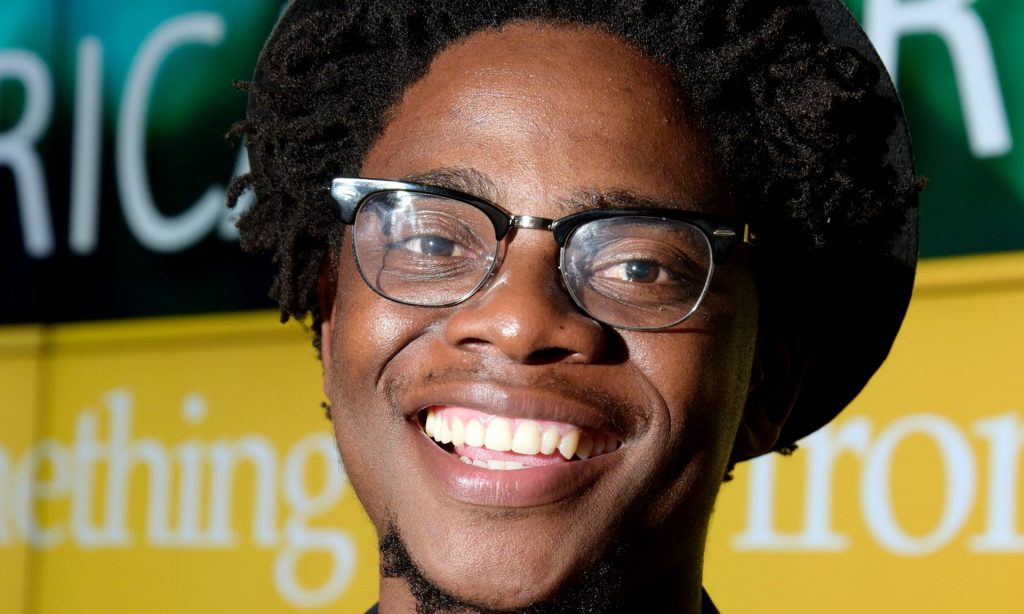
Photograph: The Caine Prize
South African writer Lidudumalingani laughs when I ask if he’s going to share his £10,000 prize money with his fellow shortlisted Caine Prize authors, like last year’s winner did.
“I wish I could do that. But journalists and writers in Africa work hard to cover stories with very little resources. There is no money in it, because no one pays you until you win some kind of prize,” he says.
The 31-year-old was last week named the winner of the 17th annual Caine Prize for African Writing for his story Memories We Lost, exploring the effect of mental illness on a family in South Africa.
Arguably the most prestigious prize for Africans writing in English, the prize thrusts its shortlisted writers onto the international publishing scene. But Memories We Lost was only Lidudumalingani’s second published story, having first appeared in a new literary magazine called Incredible Journey, after an open call for submissions.
The magazine also published the first piece of fiction from Zimbabwean journalist and writer Bongani Kona, also shortlisted for this year’s prize.
Lidudumalingani explains that this leap isn’t unusual for writers on the continent seeking their first break. As cash-strapped African publishers rely on producing school text books to survive, young authors find it difficult to find paying outlets who will take a chance on poetry and fiction by newcomers.
“The idea that a few publishers promote African literature as gatekeepers should be dispelled,” Lidudumalingani says. “There are a lot more readers than there are publishers and we should be able to define our own literature and read it whenever we want.”
Literary journals and non-profit trusts have stepped in to do just that, with outlets like Jalada in Kenya, Saraba in Nigeria and Short Story Day Africa providing an increasingly powerful springboard for young talent.
Together with fellow medical students Ile-Ife and Emmanuel Iduma, Dami Ayaji launched Saraba in 2009, with early issues publishing works from Nigerian writers such as Elnathan John, Chika Unigwe and Kenyan poets Clifton Gachagua and Keguro Macharia, among others.
Saraba has since published 18 issues and Ajayi, who also works full-time as a doctor in a psychiatric hospital in Lagos, says that despite the lack of resources online literary magazines have become a crucial outlet in Africa’s publishing industry.
“The cost of running Saraba comes from our own pockets so we are unable to pay our writers, and it is a labour of love for both writers and editors,” he says.
The same applies for the Nairobi-based collective Jalada, which was founded two years ago at a writing workshop in Nairobi by around 20 writers, poets and visual artists from Kenya, South Africa, Nigeria, Uganda and Zimbabwe.
Aside from publishing their own original work, members of the collective volunteer their time and skills to edit submissions from Jalada’s growing network of contributors, and organise readings and events in Nairobi.
Jalada’s managing editor Moses Kilolo explains that the collective came about after members became dissatisfied by the lack of opportunities on offer via traditional publishing houses, and decided to do something about it.
Since then, more than six of Jalada’s writers and poets have been awarded prestigious literary prizes, including Okwiri Oduor and Ndinda Kilonzo, who won the 2014 Caine Prize and Moorland Writing Scholarship respectively.
“We wanted to break the stereotypes of conventional themes and stretch our reach in creative writing, but with no resources the only way to go was publishing online,” he explains.
The journal has published six issues that boldly tackle themes such as sex and mental illness, that often receive little attention from traditional publishers. The most recent issue featured an original short story from renowned Kenyan writer Ngugi wa Thiong’o and was translated into more than 30 languages.
As the publishing industry in Africa continues to struggle with dwindling revenues and increasing state censorship, literary magazines hope to continue to promote the work of talented new voices.
“I feel that as a writer I have a responsibility to write the world the way I see it,”says Lidudumalingani. “As African writers, we have to be persistent even with little resources because there are so many stories to tell and no one else to tell them.”


One Response
Hi guys. The publisher of Incredible Journey here. Thanks for the pingback to the Burnet Media website, but just to clarify: Incredible Journey is a book, not a magazine. It is the third of the annual Short.Sharp.Stories anthologies, which are published in conjunction with South Africa’s National Arts Festival (who sponsor the prize money) and curated by Joanne Hichens. As Dudu says, money is short in publishing (!) so all interest is welcome. See shortsharpstories.com for info on the prize and the next anthologies.
Tim Richman, Cape Town